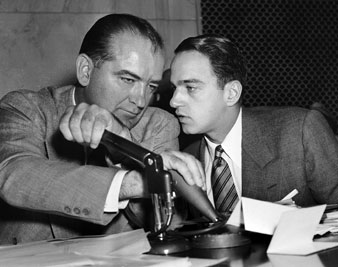California Legislature Contemplates Banning Internal Combustion Engines By 2040
AB 1745 by Assm. Phil Ting (D-San Francisco) would follow similar policies in Norway and the United Kingdom
Countries like China, Norway and the U.K. have made headlines recently with plans to ban the sale of internal combustion engine passenger vehicles by 2040 or soon thereafter. Is California next?
Governor Brown expressed interest in the state following suit, to maintain its mantle as a global electric vehicle leader. And now Assemblymember Phil Ting (San Francisco) has introduced AB 1745 to ban registrations of new internal combustion engines by 2040.
As a legal matter, California probably won’t be able to enforce this ban without a waiver from the federal government under the Clean Air Act, which otherwise prevents states from issuing stronger tailpipe emissions standards than federal regulations. But that issue is a long way off.
So in the meantime, the bill would be a symbolic but also a practical signal to industry and state policymakers in various agencies that California is serious about phasing out fossil fuel use in passenger vehicles. And it would give the state direction to start laying the policy foundation to make this transition in a more aggressive way (such as the Governor’s recent move to up the state’s EV goal to 5 million by 2030).
Fortunately, automakers are already heading in the EV direction, albeit tepidly. Part of the problem, as Bloomberg covered last month, is that forecasts for EV adoption are uncertain:
Electric cars—which today comprise only 1 percent of auto sales worldwide, and even less in the U.S.—will account for just 2.4 percent of U.S. demand and less than 10 percent globally by 2025, according to researcher LMC Automotive. But while consumer appetite slogs along, carmakers are still planning a tidal wave of battery-powered models that may find interested buyers few and far between.
It’s a bit of a chicken-and-egg problem, but no automaker wants to be caught flat-footed on what looks to be a potential revolution in transportation.
Meanwhile, the transition to zero-emission vehicles raises all sorts of policy questions, as the New York Times explored recently. The bottom line is that we’ll need more charging infrastructure and vastly reduced costs in batteries to make the vehicles ubiquitous. Part of that involves a more secure battery supply chain.
One point of disagreement with the Times piece though: the article claims people may be too attached to the feel and smell (!) of internal combustion engines to switch to electric. But for anyone who’s driven an electric vehicle and experienced its superior driving experience, this fear is almost laughable. The product is simply better than a gas engine.
Ting’s bill will benefit from that technological superiority and falling costs of batteries (Next 10 just released a report documenting the swift decline in battery prices over the last decade or so). But it will face some serious political headwinds from entrenched interests that benefit from gas-powered vehicles.
And one interesting historical note: Senator Gaylord Nelson (D-Wisconsin) actually proposed an amendment to the federal Clean Air Act in 1970 to ban internal combustion engines by 1975, as the New York Times reported at the time. We can only imagine how different the world would be today if Congress had followed his lead.
Reader Comments
One Reply to “California Legislature Contemplates Banning Internal Combustion Engines By 2040”
Comments are closed.







An intersting piece of legislation, and likely to lead the way.
The headline for the story, though, is slightly inaccurate, since the bill would ban NEW engines, not all engines. It makes it sound scarier to car owners (though in 2040, how many existing cars will be on the road?).